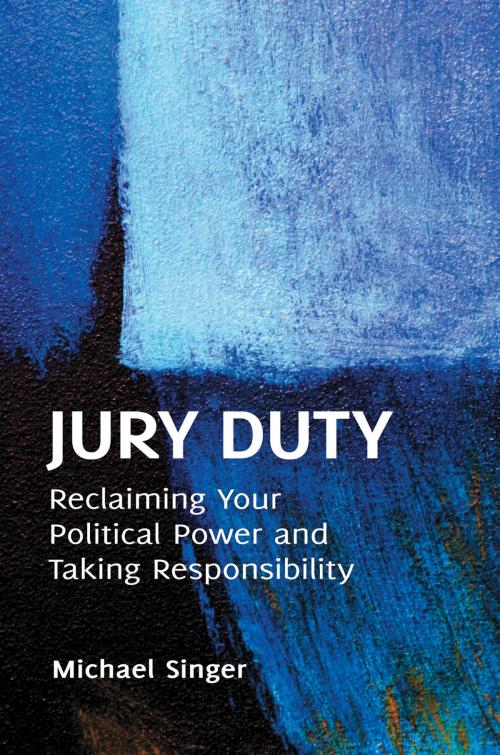Jury Duty: Reclaiming Your Political Power and Taking Responsibility
Nonfiction, Social & Cultural Studies, Political Science, Government, Civics| Author: | Michael Singer | ISBN: | 9781440802706 |
| Publisher: | ABC-CLIO | Publication: | July 6, 2012 |
| Imprint: | Language: | English |
| Author: | Michael Singer |
| ISBN: | 9781440802706 |
| Publisher: | ABC-CLIO |
| Publication: | July 6, 2012 |
| Imprint: | |
| Language: | English |
Jury Duty: Reclaiming Your Political Power and Taking Responsibility presents an accessible account of the origins and development of the jury system as well as a comprehensive, stage-by-stage description of a jury trial and of the sentencing procedure in a criminal trial. The work also provides a unique estimate of the cost of the jury system, which is particularly relevant in this continuing era of budget constraints.
Rejecting the justifications usually given for the jury system, the work explains how the political roles of the jury constitute the chief value of the jury system. The basis of these political roles is the unquestionable power of the jury to acquit even a guilty criminal defendant, which allows juries to prevent the enforcement of unjust laws and the imposition of unjust punishments. Accordingly, the book challenges a range of practices that the judiciary has developed to obstruct the jury's exercise of this power. Most people—even including many lawyers—remain unaware of these practices, but they undermine the value of the jury system to our society. Finally, the book offers an original, thought-provoking analysis of the responsibilities imposed on criminal trial jurors in cases of compelling injustice.
Jury Duty: Reclaiming Your Political Power and Taking Responsibility presents an accessible account of the origins and development of the jury system as well as a comprehensive, stage-by-stage description of a jury trial and of the sentencing procedure in a criminal trial. The work also provides a unique estimate of the cost of the jury system, which is particularly relevant in this continuing era of budget constraints.
Rejecting the justifications usually given for the jury system, the work explains how the political roles of the jury constitute the chief value of the jury system. The basis of these political roles is the unquestionable power of the jury to acquit even a guilty criminal defendant, which allows juries to prevent the enforcement of unjust laws and the imposition of unjust punishments. Accordingly, the book challenges a range of practices that the judiciary has developed to obstruct the jury's exercise of this power. Most people—even including many lawyers—remain unaware of these practices, but they undermine the value of the jury system to our society. Finally, the book offers an original, thought-provoking analysis of the responsibilities imposed on criminal trial jurors in cases of compelling injustice.

![Cover of the book Historic Sites and Landmarks that Shaped America: From Acoma Pueblo to Ground Zero [2 volumes] by Michael Singer](https://www.kuoky.com/images/2016/september/300x300/9781610697507-0Rft_300x.jpg)




![Cover of the book The Praeger Handbook of Media Literacy [2 volumes] by Michael Singer](https://www.kuoky.com/images/2013/november/300x300/9780313392825-Hg5z_300x.jpg)







![Cover of the book Clothing and Fashion: American Fashion from Head to Toe [4 volumes] by Michael Singer](https://www.kuoky.com/images/2015/november/300x300/9781610693103-CVbp_300x.jpg)
